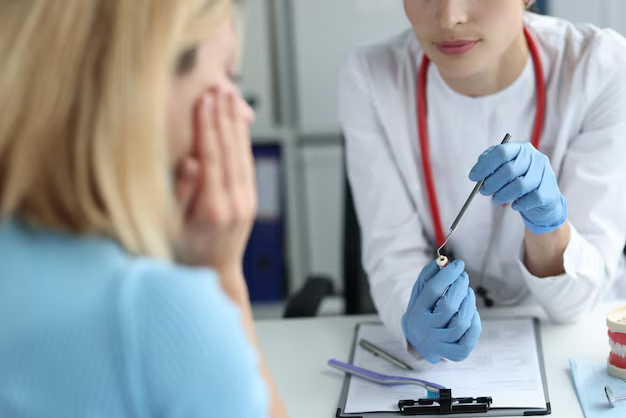Is Rosacea an Autoimmune Disease? Understanding the Connections and Myths
When the topic of skin conditions arises, one of the most frequently discussed but often misunderstood conditions is rosacea. This chronic skin disorder causes facial redness, visible blood vessels, and in some cases, acne-like breakouts. While many people might encounter this condition, questions abound: Is rosacea more than just a skin issue? Could it be an autoimmune disease? In this comprehensive guide, we delve into the nuances of rosacea, exploring potential links to autoimmune disorders from multiple angles, and offering insights into living with this condition.
Rosacea: An Overview
To begin with, let's lay the groundwork by understanding what rosacea is. Often mistaken for acne, eczema, or a skin allergy, rosacea is a distinct condition characterized by:
- Persistent facial redness, primarily on the cheeks and nose
- Swelling and bumps that resemble acne
- Visible small blood vessels
- Eye irritation in some cases, known as ocular rosacea
Flare-ups are typically triggered by environmental and lifestyle factors like sunlight, stress, spicy foods, alcohol, and temperature changes. While rosacea is more common in people with fair skin, it can affect anyone. Given its chronic nature, managing rosacea involves identifying and avoiding personal triggers.
Exploring Autoimmunity: What It Means and Its Impact
Before assessing whether rosacea could be an autoimmune disease, it's crucial to understand what constitutes an autoimmune disorder. In such conditions, the immune system mistakenly attacks the body’s own tissues, leading to inflammation and damage. Common autoimmune diseases include rheumatoid arthritis, lupus, and multiple sclerosis.
Key Characteristics of Autoimmune Conditions
- Immune system dysfunction: The body's defense system mistakenly targets its own cells.
- Diverse symptoms and effects: These conditions can affect various organs and systems.
- Chronic and lifelong: Most autoimmune diseases require long-term management.
Is There a Link? Rosacea and Autoimmunity
The core question remains: Does rosacea meet the criteria of an autoimmune disorder?
Current Understanding and Research
Though rosacea itself is not classified as an autoimmune disease, research suggests a possible immune system involvement. Various studies have highlighted:
- Increased immune activity: Individuals with rosacea often exhibit heightened immune responses, especially in their skin.
- Cytokine levels: Elevated inflammatory markers, known as cytokines, are present in affected skin areas.
- Cross-reactivity: Some people with rosacea show signs of other autoimmune conditions, though this does not confirm rosacea as autoimmune.
The immune system's role in rosacea is complex and not definitively understood, leading to ongoing research examining these connections.
The Genetics Question: Family History and Inheritance
For a deeper understanding of rosacea, it’s vital to consider genetics. While not exclusively inherited, there’s an observed tendency for rosacea to run in families. Many patients report a family history of similar symptoms or related conditions, suggesting genetic predisposition might play a role.
Exploring Genetic Components
- Gene involvement: While specific genes haven't been identified, research continues into the genetic basis of rosacea.
- Related conditions: Genetics might link rosacea to other inflammatory or autoimmune conditions within families.
Living with Rosacea: Practical Strategies and Tips
Living with rosacea means adapting your lifestyle and skincare routines to minimize flare-ups and manage symptoms effectively. Here are practical tips:
Skincare Routine
- Gentle cleansers: Use mild, fragrance-free products to cleanse your face.
- Moisturize daily: Keep skin hydrated with a non-comedogenic, hypoallergenic moisturizer.
- Sun protection: Apply broad-spectrum sunscreen to protect against UV-induced flare-ups.
Lifestyle Adjustments
- Identify triggers: Maintain a diary to track and avoid personal flare-up triggers like spicy foods and alcohol.
- Stress management: Practice stress-reducing activities such as meditation or yoga.
- Healthy diet: Consume anti-inflammatory foods and stay hydrated.
When to Seek Medical Advice
It's essential to consult a healthcare professional if rosacea significantly impacts your life. Seeing a dermatologist can help tailor treatment options that may include topical or oral medications. Professional guidance can ensure a better quality of life and symptom management.
Debunking Myths: Common Misconceptions About Rosacea
Despite its prevalence, several myths persist about rosacea, potentially conflating it with other conditions or treatments. Let’s break these down for clarity:
Myth 1: Rosacea is the Same as Acne
While both conditions can present with bumps and redness, their causes and treatments differ. Rosacea is primarily characterized by persistent redness and blood vessel visibility, not just breakouts.
Myth 2: Only Fair-Skinned People Get Rosacea
Although more common in individuals with lighter skin tones, rosacea can affect any skin type.
Myth 3: Rosacea is Caused by Poor Hygiene
Rosacea is neither caused by nor worsened by personal hygiene levels; it is related to more complex immune and genetic factors.
Key Takeaways and Understanding
Rosacea, while having some overlapping characteristics with autoimmune diseases due to immune responses, is not classified definitively as one. Its complexities require understanding and patient management. By implementing lifestyle changes and seeking appropriate care, individuals with rosacea can lead comfortable lives, managing and mitigating their symptoms effectively.
Quick Summary 🚀
- Rosacea Characteristics: Facial redness, visible blood vessels, acne-like bumps.
- Potential Immune Component: Not autoimmune but shows immune system involvement.
- Genetic Factors: Possibly hereditary with some genetic predisposition.
- Management Tips: Identify triggers, gentle skincare, sun protection.
- Myths Debunked:
- Not the same as acne.
- Affects all skin tones.
- Not caused by poor hygiene.
- Consult a Dermatologist: Seek expert advice if symptoms are severe.

